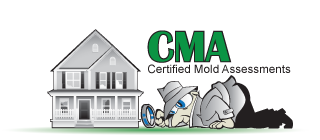 Mold spores are everywhere, like it or not. In fact, they perform a valuable function in the ecosystem — so it wouldn’t actually be a good thing to eradicate all mold from the face of the earth. But when it comes to our homes, it’s important to keep mold at ordinary levels. If mold spores get out of hand due to an undetected (or neglected) mold infestation, a whole list of health risks come into play. Here are a few mold-related health risks you might not have considered.
Mold spores are everywhere, like it or not. In fact, they perform a valuable function in the ecosystem — so it wouldn’t actually be a good thing to eradicate all mold from the face of the earth. But when it comes to our homes, it’s important to keep mold at ordinary levels. If mold spores get out of hand due to an undetected (or neglected) mold infestation, a whole list of health risks come into play. Here are a few mold-related health risks you might not have considered.
1. Gastrointestinal issues
People usually think of respiratory issues when they think of mold exposure, and respiratory problems are certainly the main risk when you’re being exposed to toxic levels of mold. But mold can also cause stomach problems if accidentally ingested. A condition known as candidiasis, which is essentially a gastrointestinal yeast infection, can also result from chronic mold exposure. These types of problems generally occur from eating contaminated food, but having high levels of mold in the air can actually lead to contaminated food.
2. Neurological problems
Toxic mold exposure is not good for any aspect of the body, but one of the most troubling possibilities involves neurological damage. A condition known as ergotism can result from breathing toxic levels of mold over a sustained period, and the side effects can be far-reaching: dizziness, fatigue, muscle spasms, and even seizures.
3. Birth defects
Expecting parents should take extra care to make sure the air in the home is healthy, and does not contain toxic levels of mold. If a pregnant woman is exposed to toxic levels of mold (or any quantity of the most toxic molds), the development of the fetus can be affected.
4. Skin conditions
Mold not only has adverse affects on the respiratory system, but also on the skin. Exposure to abnormal levels of mold can lead to skin rash and other dermatological allergic reactions. If you’ve been noticing a combination of new symptoms including skin rash, it may be time to call a mold testing specialist.
5. Asthma
If you or someone in your family has asthma, the presence of mold in the air can worsen the condition and trigger asthmatic episodes. Mold is very tough on the respiratory system in general, and if someone already has a respiratory condition like asthma, there’s a good chance mold will exacerbate it.
How to avoid mold-related health risks
Mold prevention is the key — it’s always better to stop mold from becoming a problem in the first place, rather than dealing with it after the fact. Understanding how mold grows, and what it needs in order to flourish, is the best first step in setting up an effective mold prevention strategy.
If mold has already become a problem, don’t panic — there are reliable and professional methods for dealing with mold and rooting it out at its source. Find a reputable mold inspection expert in your area and have your home carefully assessed. If a mold problem is discovered, your expert will be able to discuss remediation strategies that will restore your home (and its inhabitants) to health!

